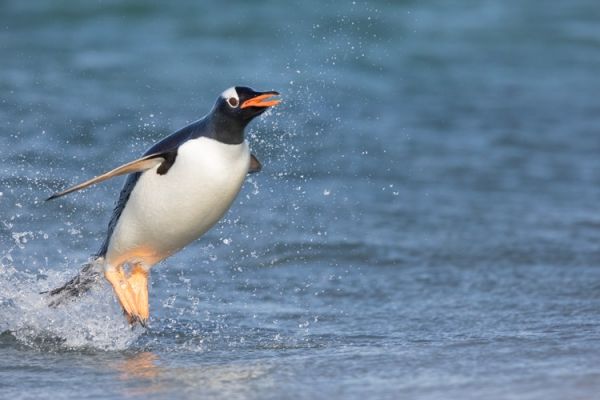From the four-foot-tall emperor penguin to the aptly named foot-long little penguin, these unique flightless birds have invaded habitats from Antarctica to the equator, not to mention the hearts of the public.
A comparison of the full genomes of 18 recognized species of penguins provides clues to how they achieved this success — though not their adorability — over tens of millions of years, through warm and cold climate swings. It also cautions that today’s rapidly changing climate may be too much for them.
“We are able to show how penguins have been able to diversify to occupy the incredibly different thermal environments they live in today, going from 9 degrees Celsius (48 F) in the waters around Australia and New Zealand, down to negative temperatures in Antarctica and up to 26 degrees (79 F) in the Galápagos Islands,” said Rauri Bowie, professor of integrative biology at the University of California, Berkeley, and curator in the Museum of Vertebrate Zoology (MVZ) at Berkeley. “But we want to make the point that it has taken millions of years for penguins to be able to occupy such diverse habitats, and at the rate that oceans are warming, penguins are not going to be able to adapt fast enough to keep up with changing climate.”
Continue reading at University of California Berkeley
Image via University of California Berkeley


